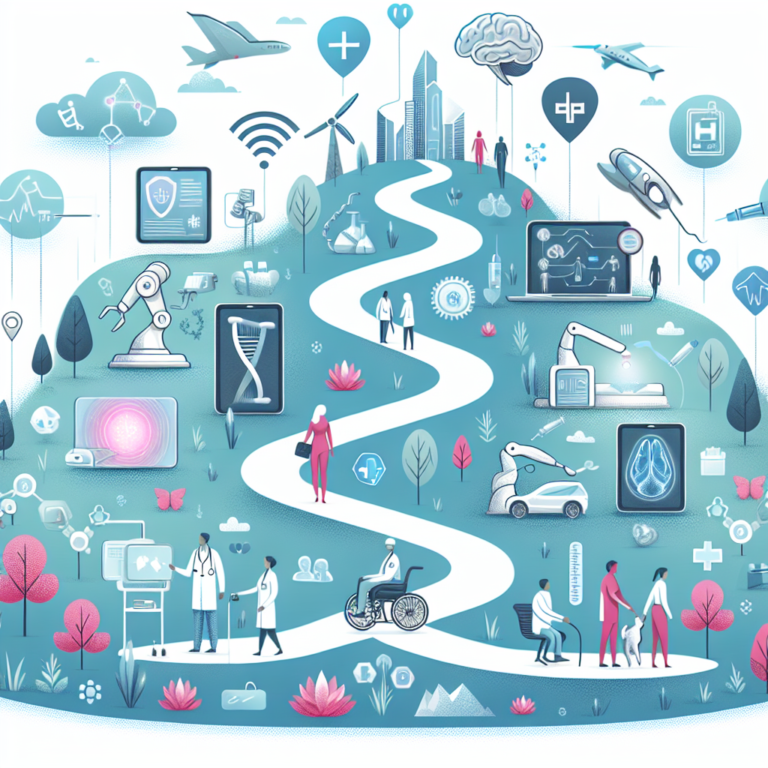In an era defined by rapid technological advancements and groundbreaking research, the field of medicine stands at the forefront of innovation, reshaping the way we understand and approach healthcare. As we delve deeper into the 21st century, medical science is not only extending the boundaries of what is possible but also redefining the standard of care for patients worldwide. This article aims to provide a comprehensive overview of the remarkable medical advancements that have emerged in recent years and guide readers through the evolving medical landscape, highlighting key trends and innovations that are transforming the industry. By exploring these topics, we hope to offer valuable insights into the dynamic world of medicine and its profound impact on society. Join us as we unravel the complexities of modern medicine and discover the pivotal role it plays in shaping our future.
1. “Understanding Medical Advancements: A Comprehensive Overview”
The field of medical science has witnessed remarkable advancements over the past few decades, revolutionizing the way we understand, diagnose, and treat various health conditions. These medical advancements have not only improved patient outcomes but have also enhanced the quality of life for millions around the globe.
One of the most significant medical advancements is the development of precision medicine. This approach tailors medical treatment to the individual characteristics of each patient, considering their genetic makeup and lifestyle. Precision medicine has been particularly transformative in the field of oncology, where targeted therapies have improved survival rates for several types of cancer.
Another groundbreaking advancement is the advent of telemedicine. This technology-driven approach has made healthcare more accessible, particularly for those in remote areas. Patients can now consult with healthcare professionals from the comfort of their homes, reducing the need for in-person visits and enabling more timely medical intervention.
In addition, the integration of artificial intelligence (AI) in healthcare is paving the way for more accurate diagnostics and personalized treatment plans. AI algorithms analyze vast amounts of medical data to identify patterns that might be missed by human eyes, thereby aiding in early detection and prevention of diseases.
Furthermore, advancements in medical devices and technologies, such as minimally invasive surgical techniques and robotic surgery, have significantly reduced recovery times and improved surgical outcomes. These innovations have made procedures that were once considered high-risk much safer and more effective.
The continuous evolution of vaccines and antiviral drugs is another testament to medical progress. The rapid development and distribution of vaccines for emerging infectious diseases, like COVID-19, highlight the critical role of medical research and collaboration in addressing global health challenges.
 Also Read:
Women’s Mental Health: A Guide to Managing Stress &...
Also Read:
Women’s Mental Health: A Guide to Managing Stress &...
Overall, understanding these medical advancements is crucial for both healthcare professionals and patients. Staying informed about the latest developments not only empowers individuals to make better health decisions but also fosters a more proactive approach to personal healthcare management. As medical science continues to evolve, the promise of better health outcomes and increased longevity becomes increasingly attainable.
2. “Navigating the Medical Landscape: Key Trends and Innovations”
In recent years, the medical landscape has been undergoing rapid transformation, driven by key trends and innovations that are reshaping how healthcare is delivered and experienced. One of the most significant developments is the integration of digital health technologies. Telemedicine, for instance, has become a cornerstone of contemporary healthcare, offering patients the convenience of virtual consultations and remote monitoring. This shift not only enhances patient access to medical expertise but also helps alleviate the burden on physical healthcare facilities.
Another notable trend is the rise of personalized medicine. Advances in genomics and biotechnology are enabling healthcare providers to tailor treatments to individual genetic profiles, improving the efficacy of interventions while minimizing side effects. This approach is particularly impactful in areas like oncology, where targeted therapies are revolutionizing cancer treatment.
Artificial intelligence (AI) and machine learning are also making significant inroads into the medical field. These technologies are being harnessed to analyze vast amounts of medical data, aiding in early diagnosis and predicting patient outcomes with unprecedented accuracy. AI-driven diagnostic tools and decision support systems are empowering physicians to make more informed clinical decisions, ultimately enhancing patient care.
Additionally, there is a growing focus on preventative healthcare, emphasizing the importance of lifestyle and wellness in maintaining health. Wearable devices and mobile apps are playing a pivotal role in this trend, providing individuals with real-time insights into their health metrics and encouraging proactive management of their well-being.
The medical landscape is also witnessing a shift towards value-based care, where the emphasis is on delivering high-quality care that improves patient outcomes while controlling costs. This approach incentivizes healthcare providers to focus on effective treatments and patient satisfaction, fostering a more patient-centric healthcare system.
In conclusion, navigating the evolving medical landscape requires staying abreast of these dynamic trends and innovations. As these changes continue to unfold, they hold the promise of improving healthcare accessibility, personalization, and efficiency, ultimately enhancing the quality of life for patients worldwide.
